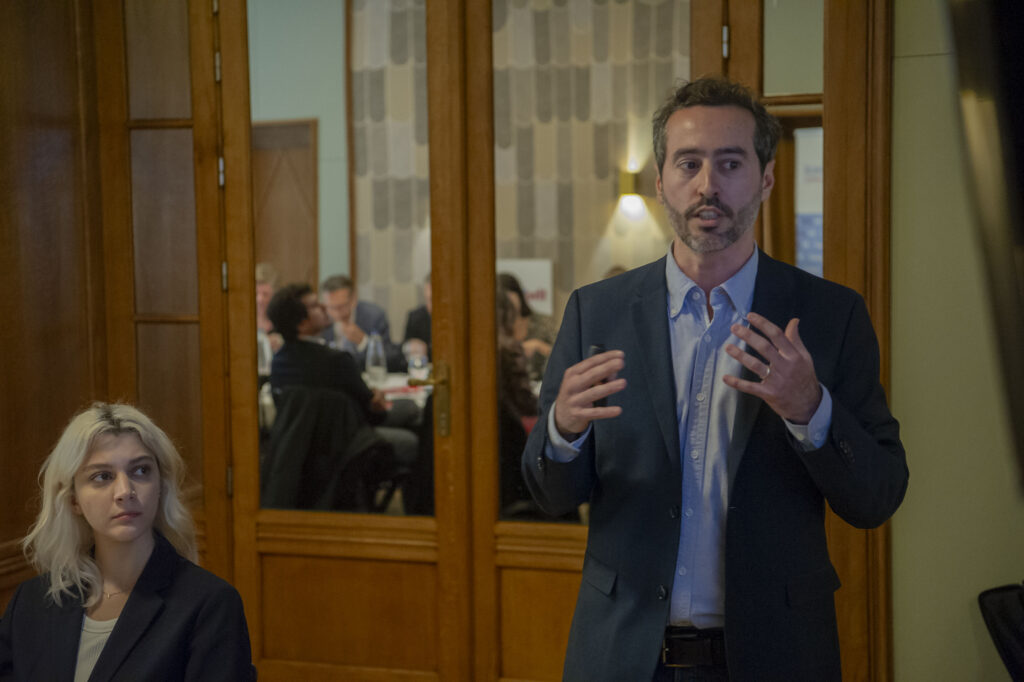June 2025
Copyright in the Generative AI Era

A dream is becoming reality as artificial intelligence now enables anyone to transform an idea into an artwork within seconds, breaking down creative barriers like never before. Yet, alongside its promises, this shift raises important questions on how to protect creators’ rights and safeguard genuine creativity. The European Union is trying to balance the risks and opportunities with the forthcoming code of practice for general-purpose artificial intelligence that aims to uphold innovation while safeguarding copyright and intellectual property law.
With the code expected in June 2025, the Lisbon Council convened the High-Level Working Lunch on Copyright in the Age of Generative Artificial Intelligence: How to Strike the Balance Between Innovation, Creativity and Territoriality, bringing together policymakers, academics, technology leaders and rights holders for a timely discussion on the future of creativity in the age of generative artificial intelligence.
Professor João Quintais from the Institute for Information Law at the University of Amsterdam opened the conversation by sharing the latest insights from Copyright, the AI Act and Extraterritoriality, an upcoming policy brief on the importance of regulatory clarity. High-level participants also included Antoine Aubert, digital specialist, intellectual property, European Union Intellectual Property Office; Caroline De Cock, coordinator, Coalition4Creativity; Kilian Gross, head of unit, artificial intelligence regulation and compliance, artificial intelligence office, European Commission; Ania Helseth, policy manager, European affairs, Meta; Philippe Meistermann, manager, European government affairs, Spotify; Tobias McKenney, copyright counsel Europe, Middle East and Africa, Google; Alexander Peukert, professor and chair, code of practice and copyright, Goethe University; Gianpaolo Scacco, cultural policy officer, directorate general for education, youth, sport and culture, European Commission; and Stephen Wyber, director, policy and advocacy, International Federation of Library Associations and Institutions.